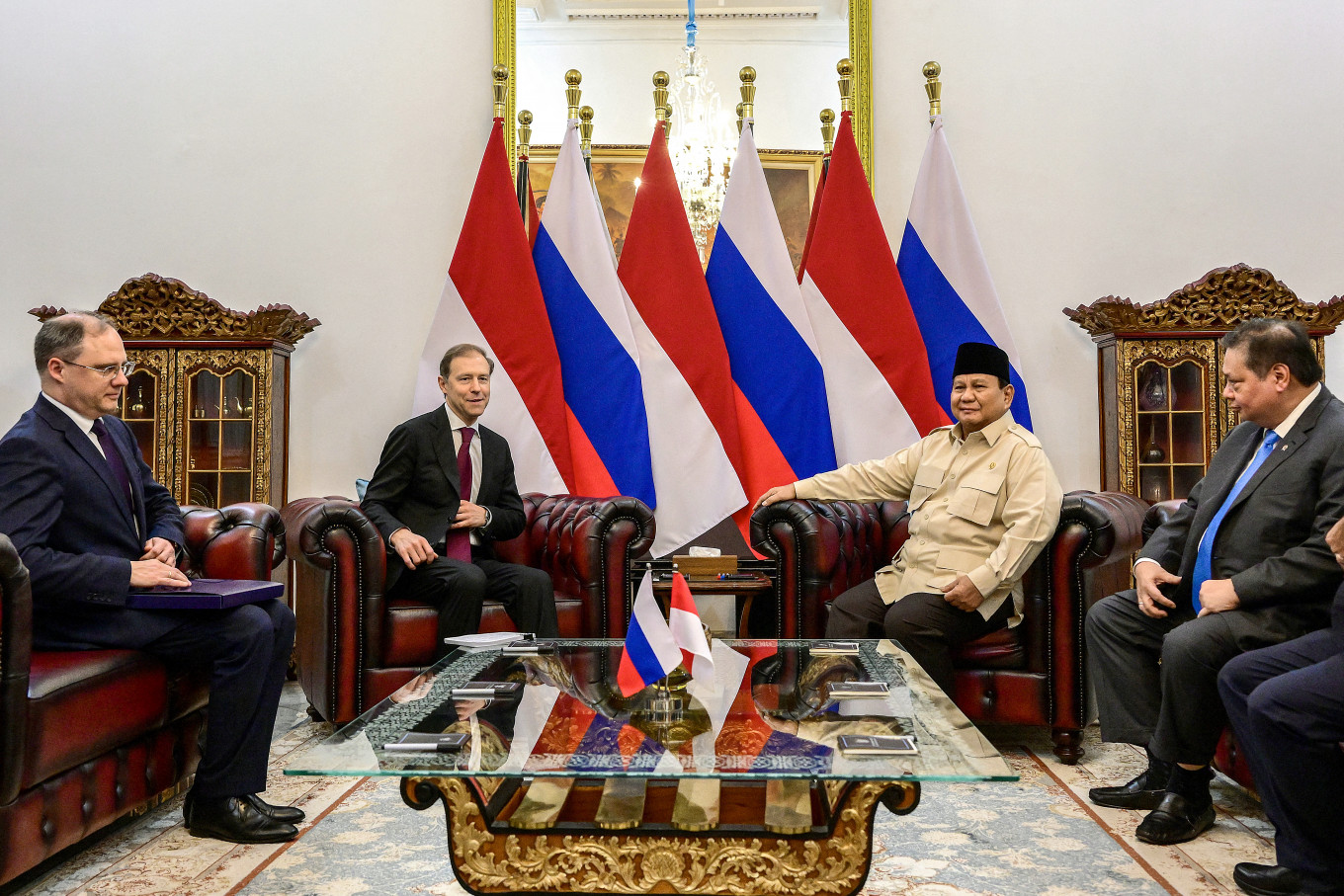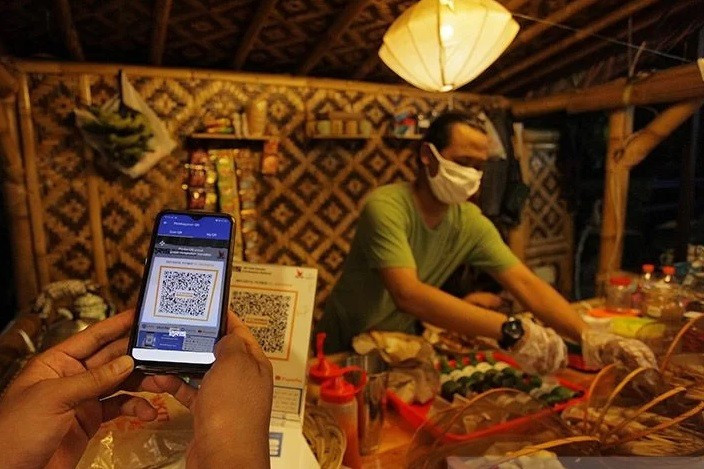Popular Reads
Top Results
Can't find what you're looking for?
View all search resultsPopular Reads
Top Results
Can't find what you're looking for?
View all search resultsA Russian base in Indonesia? Should Australia be concerned?
Moscow and Jakarta have sought to deepen military ties in recent years, which should give Australia some reason for concern.
Change text size
Gift Premium Articles
to Anyone
A
news report that Russia has sought to base long-range aircraft in Indonesia caught Australia’s political leaders by surprise during an already hectic election campaign.
The military publication Janes reported on Tuesday that Russia had requested permission for its aircraft to be based at the Manuhua Air Force Base in Papua.
The base is just 1,300 kilometers away from Darwin, Australia.
Australian Defense Minister Richard Marles issued a statement denying the report, saying his Indonesian counterpart assured him there would be no Russian planes based in Indonesia. Australian Prime Minister Anthony Albanese said he was seeking “further clarification” with Jakarta about the Janes report.
Janes is a respected outlet when it comes to defense news, so it is likely the Russians did float the idea, even if it might have been done at lower levels.
Since President Prabowo Subianto came to power last October, Moscow and Jakarta have sought to deepen their military ties. In fact, the two countries conducted their first-ever joint naval exercises a month after Prabowo took office.
But this is not a totally new strategy by Moscow, which has tried on numerous occasions to pivot to Asia to give itself more economic heft and leverage in the region.
The Kremlin is also cognizant that Europe will not be a friend for the foreseeable future. As such, it is even more pressing for Russia to establish itself as a player in the Indo-Pacific region, and with that comes a military and security presence.
About 10 years ago, for instance, the Russian regime secured an agreement with Vietnam to allow the Russian air force to refuel their aircraft at a former United States base in the country. Russia also had interest in reestablishing a submarine base in Vietnam and has sold submarines to the country.
In addition, Moscow has sought to sell defense technology and fighter jets to Indonesia for some time, seeing it as a potentially lucrative market for Russian arms. Beyond defense, the bilateral relationship has also focused on energy and education.
These attempts to deepen Moscow-Jakarta ties form part of a targeted Russian campaign to boost its relationships with a number of Southeast Asian nations.
If the Janes report is accurate, the timing of the purported approach from Russia would be interesting. The report said it came after a meeting between Sergei Shoigu (recently demoted from Russia’s defense minister to an inferior role as secretary of the Russian Security Council) and Indonesia’s defense minister in February of this year.
At the time, the US was distracted by the first chaotic weeks of US President Donald Trump’s second term in office.
So, if Russia did make such a request, it would be highly opportunistic, especially given Jakarta has been keen to deepen ties with Moscow.
It is also noteworthy that Indonesia recently joined BRICS, the group of rapidly emerging economies that also includes Brazil, Russia, India, China and South Africa, among others.
Even though both Canberra and Jakarta dismissed the report, there was good reason for Australia to be concerned.
Russia’s long-range aviation assets, notably the venerable Tu-95, which is used for reconnaissance as well as strategic bombing, can easily travel over 10,000 km.
From a base in Indonesia, this would give the Russian air force the ability to conduct intelligence, surveillance and reconnaissance (ISR) missions during Australian military exercises, gather data on military installations in the Northern Territory (which also host US Marines) and even conduct surveillance on US military activities in Guam.
Equally, given the closeness of ties between Beijing and Moscow, any Russian intelligence that was gathered could be shared with China.
The reported Russian military interest in Indonesia will also irritate Australian foreign policy makers, especially since Canberra has invested significant diplomatic capital in boosting Australia-Indonesia ties.
Fortunately, the closeness of the relationship, which includes recently upgraded defense ties, will also allow for some plain speaking from Australian interlocutors.
They will doubtlessly point out that agreeing to any such Kremlin request would cast significant doubt on Indonesian claims about non-alignment. It would also be viewed unfavorably by other regional actors, who have no interest in seeing an enhanced Russian military presence in the region.
The assurance from Jakarta that no Russian planes would be based in Indonesia is therefore a positive development.
But ultimately the reported Russian request is another example of the messy and fragmented world we now live in.
It highlights the reality that Australia will sometimes have to do business with partners who have friends Australia does not like. Under those conditions, being firm on issues that threaten its national interests, like the prospective basing of military assets by a hostile power close to its shores, becomes all the more important.
---
The writer is an adjunct associate professor at Griffith Asia Institute and a fellow at Strategic and Defence Studies Centre, Australian National University. The article is republished under a Creative Commons license.











